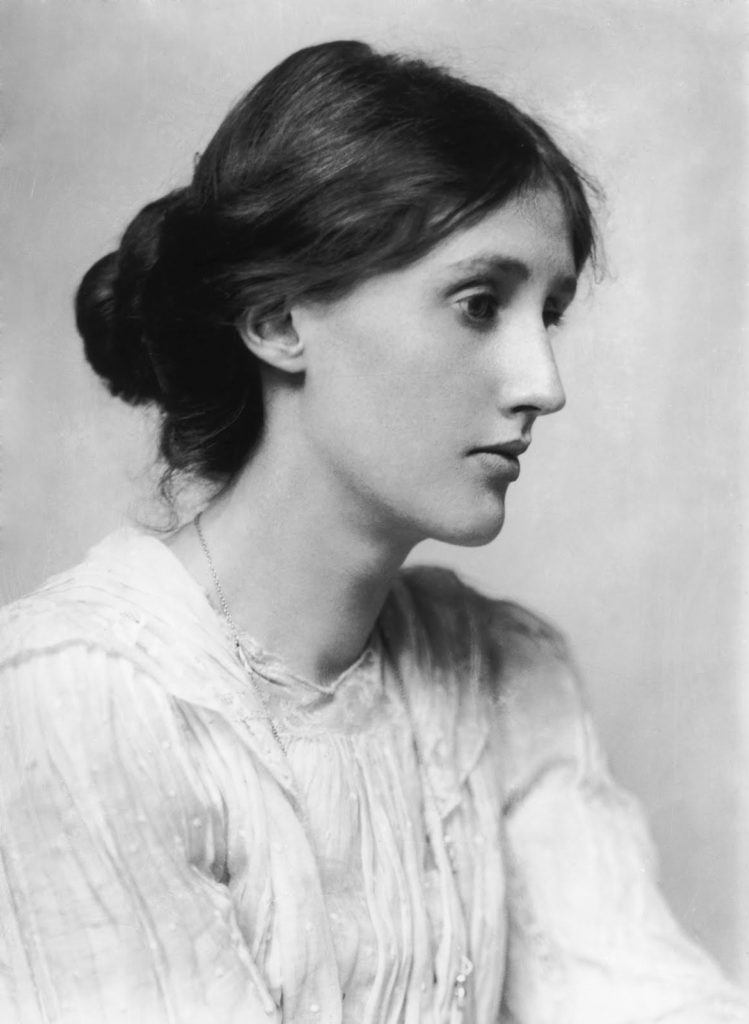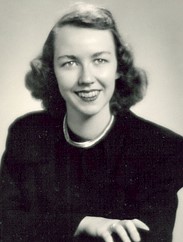Last year I went on two literary pilgrimages: Great Britain/Virginia Woolf, and Georgia/Flannery O’Connor.
The juxtaposition wasn’t intentional. My husband had work in London and I tagged along, walked around the tiny corner of Woolf’s London called Bloomsbury, then got a car and left him there working while I rambled around Sussex where she later lived. Which is to say that I drove down lanes with hedges that constantly swatted my side view mirrors to visit ramshackle houses with frowsy and riotous interiors.
As for Flannery, I’d long intended to visit her houses in tiny Milledgeville only an hour and a half through cotton fields from my house in Atlanta. Flannery grew up in one of its biggest homes, all white-columned plantation vernacular, and lived out her last Lupus-maimed years on a dairy farm outside town.
Inspired by my travels I reread them both. First Woolf, whose work struck me again with its (at the time) radically modern stream of consciousness and melancholy air: a sense that memory of the past flows over everything in the present, nearly obscuring it. Then O’Connor’s work where I was reminded of what gruesome, moral car wrecks they are (in one famous case, literally).
It may not come as a surprise to anyone else, but I was astonished to find that these two writers have something in common. It seems that both write mostly about cognitive dissonance, about people trying to fend off anything that threatens their sense of themselves as they believe themselves to be. In other words, the guarded space between what people think is true about themselves and what is true.
In Woolf, the characters are so involved in their interior world that the majority of the books Mrs Dalloway and To the Lighthouse concern themselves almost exclusively with it. Out of curiosity, I sat down and pieced out how much dialogue there was in one long scene of Mrs Dalloway, the one where Peter Walsh stops by to see Clarissa upon his return to England from India. In my edition the scene runs for thirteen pages. Only about two hundred and fifty words (about a page’s worth) are dialogue that touches only on the surface of things. Like this:
Well, and what’s happened to you?
Millions of things. I am in love. In love. In love with a girl from India.
In love! And who is she?
A married woman, unfortunately. The wife of a Major in the Indian Army. She has two small children; a boy and a girl; and I have come over to see my lawyers about the divorce.
But what are you going to do?
Oh, the lawyers and solicitors, Messrs. Hubert and Gately at Lincoln’s Inn, they are going to do it. Tell me, are you happy, Clarissa? Does Richard…
Here is my Elizabeth.
How d’y do?
Hullo, Elizabeth! Goodbye, Clarissa.
Interspersed with this shallow conversation the remaining twelve pages contain the interior recounting of their respective dissonances – Peter’s that Clarissa had turned down his marriage proposal so many years ago and what she must think of his lack of success; and Clarissa’s that her life has not turned out well, that she is dry and useless whereas he is so alive and in love. The reader alone is privy to the clash between their various assumptions about themselves and each other.
In O’Connor’s work the characters are more involved in their exterior world, in trying to force it to cohere to their ideas of how it should be and their place in it. Their actions are determined by how forcefully they insist on their own assumptions, right up until those suppositions are revealed for the lie they are. It was part of O’Connor’s religious ideas that the world would provide a corrective to this misguided sense of self, that events would divinely grace the character with a realization of their true selves. Much of the time this grace is delivered ironically and only the reader realizes it.
Think about how in “Good Country People,” Hulga/Joy is full of noisy pride, seeing herself as different than her mother or the tenant farmer’s wife – that she is a more sophisticated, independent thinker – only to have the very assumptions she shares with them, such as that “good country people” are inherently trustworthy, lead to her literally and metaphorically losing both her false perspective and her false independence (ie: her glasses and her wooden leg).
This notion of cognitive dissonance may be useful as a key to understanding or creating character. Where does a character stands on this continuum of insight into the true nature of him or herself. And if false, does the character’s judgement turn outward, with little interior reflection? Or does it turn inward, with overly high regard for his or her own opinions. Or, perhaps, both. And more specifically, what contortions, mental or physical, do they perform to maintain their self-esteem? Just something to think about.
PS: Despite this similarity in their concerns, the lives of Mrs. Woolf and Ms. O’Connor could not have been more wildly divergent. One did her best work surrounded by the most inventive and amusing minds of her time and place. The other did her best work surrounded by screaming peacocks and lowing cows. I find their extraordinarily accented speech especially revealing of this divide.
Of course, being from the South, I find Flannery’s long A’s and swallowed O’s comforting. I only found this one recording of her, unfortunately not in conversation and so certainly the accent is flattened and so easy to understand.
And here the clipped and plummy voice of Mrs. Woolf also in a formal setting. When I listen to it, I have the feeling that I am translating from her English into my English, always lagging a word behind.



